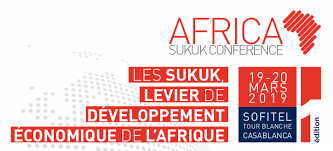Initiated by Fineopolis Institute, a member of IFAAS, a consulting firm in Islamic finance, as well as the American law firm Kramer Levin specializing in financial law, this important event bringing together issuers, investors and regulators in the financial sector, will shed light on the different opportunities and challenges for both governments and private operators in Africa.
Important institutions such as the Islamic Development Corporation, the private sector subsidiary of the Islamic Development Bank Group and the participating bank Al Akhdar Bank have joined this initiative as strategic partners of Fineopolis Institute.
During the event, the standardization body of Islamic finance (AAOIFI), will showcase the new draft standard on the governance of Sukuk.
According to a recent report, the volume of Sukuk emissions in Africa reached nearly $22 billion in 2018.
South Africa and West African countries issued several sovereign Sukuk.
In October 2018, Morocco completed this list with a first issuance of the treasury of one billion dirhams, ($100 million), strengthening the landscape for participatory finance in the kingdom.
A sukuk is an Islamic financial certificate, similar to a bond in Western finance, that complies with Sharia — Islamic religious law.
Since the traditional Western interest-paying bond structure is not permissible, the issuer of a sukuk sells an investor group a certificate, and then uses the proceeds to purchase an asset, of which the investor group has partial ownership.
The issuer must also make a contractual promise to buy back the bond at a future date at par value.


